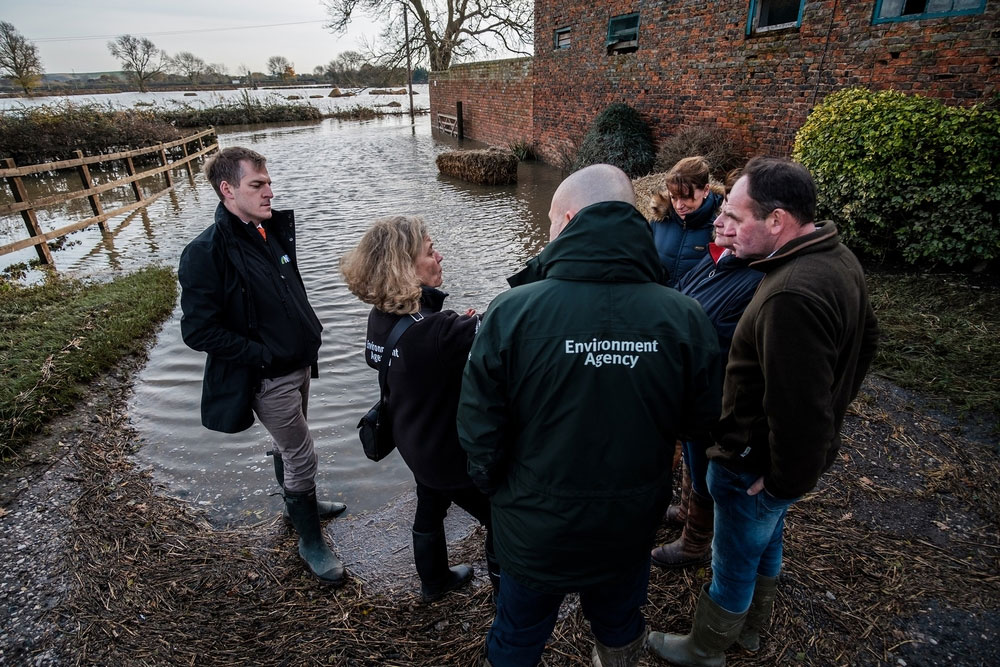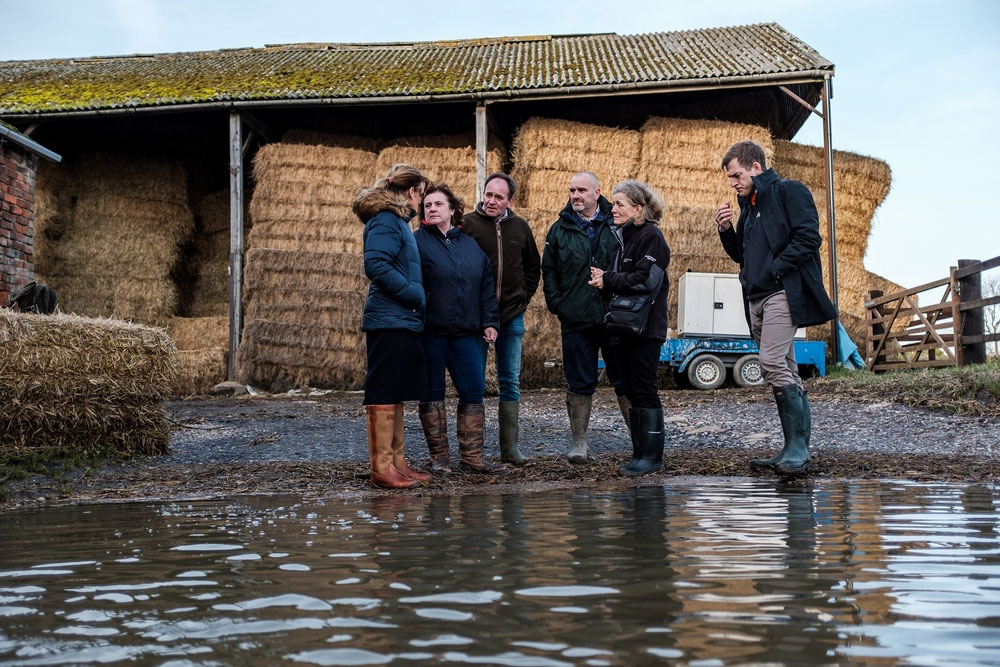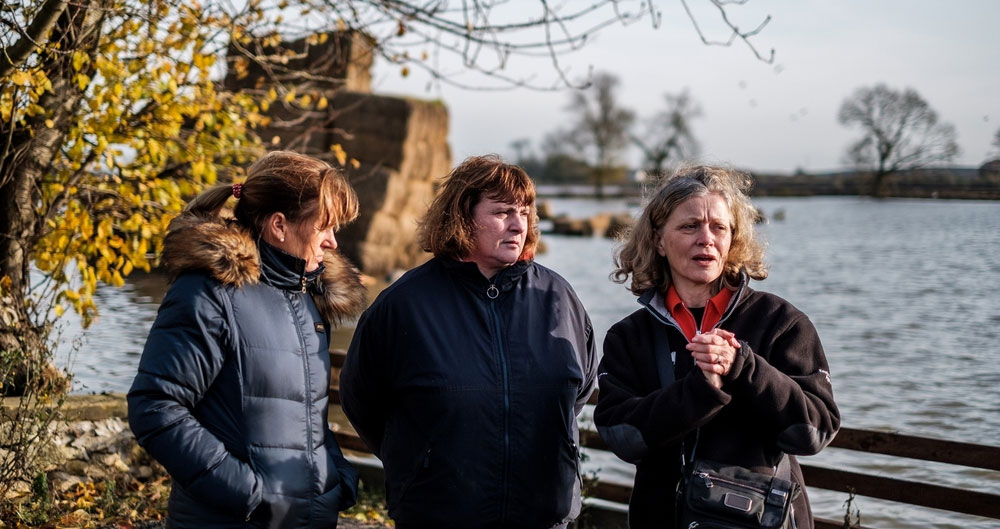NFU President Minette Batters has underlined the devastating impacts of flooding on farms as well as the need for a holistic approach from government on water management during a visit to NFU members in Fishlake, South Yorkshire with Environment Agency chair Emma Howard Boyd.
The NFU arranged the visit to NFU members Robert and Josie Robinson’s farm to highlight the extent of the damage. The farm is still under water following the severe flooding that hit South Yorkshire in early November. Mr Robinson has lived on the farm all his life. This is the first time he has witnessed damage on such a scale. The farmhouse flooded and cattle have been moved to higher ground.
Robert said:
“The issue of flooding farms and farmland needs addressing, as these are people’s businesses and livelihoods that are being devastated. Thankfully the water stopped just short of breaching our highest cattle shed as any attempt to move our cows off the farm would have been extremely difficult and potentially dangerous for both animals and people.”
Josie said:
“Whoever is responsible for making the decisions on how we manage our waterways needs to have an urgent rethink if local communities are not to see devastation on this scale repeated in the face of more frequent extreme weather events.”

Mrs Batters said:
“Nothing quite prepares you for seeing the damage that has been done. Of course, we’re here on a day when things are drying up – the water has receded. It’s probably gone down around a metre, so it looks much better today than it did.
"It must have been a terrifying experience. As far as you can see, looking out in front of the house, it’s water. The depth of the water, the scale of the damage, there’s water through the house, it’s unbelievable."
“One thing I’ve learned since being up here for the past two days is that in some places [water management] is working. Farmers in the Calder Valley are saying that it’s working. I spoke to one farmer who said he’s being paid to store water and it’s working really well. But here we are near Fishlake and it’s clearly not working. The scale and the speed of what happened is truly terrifying. There was nothing they could do and a feeling of total powerlessness in this very extreme weather event.”
What is the NFU calling for?
The NFU has asked the Environment Agency to be pragmatic when considering issues linked to the Farming Rules For Water during this period of wet weather and flooding. It is also asking the Environment Agency to ensure local officers consistently provide the assistance and flexibility needed to help farmers find slurry storage solutions throughout NVZ closed periods.
Over the past six weeks, the NFU has been in regular contact with members, the RPA and Defra over the weather and ground conditions experienced this autumn. The NFU is working closely with the RPA and Defra on a number of issues, including the need for prompt 2019 BPS payments and ways to help farmers needing to comply with scheme rules such as crop diversification. NFU members: Click here to log in and read more about this work.
In its 2019 General Election manifesto, the NFU is calling for a comprehensive and integrated water management strategy from the next government to improve farming's resilience to both water scarcity and flooding events. NFU manifesto asks from government include the call for agriculture to play a full part in the Environment Agency's strategic catchment and flood risk planning, as well as incentives acknowledging the work farmers do to:
- Store surplus winter water
- Hold seasonal flood water, protecting urban areas
- Manage soils to reduce flood risk to neighbouring properties.
Locally, in South Yorkshire, the NFU is urging the Environment Agency to work with the local farming communities and other stakeholders such as Internal Drainage Boards and the Coal Authority to understand what happened, the impacts, and gather detailed local knowledge and expertise to find and implement practical solutions for the whole drainage system.
Hear directly from Mrs Batters as she talks about the impact of flooding on agricultural land and the need for swift political decisions on a water management strategy:

Flooding at Pollington, West Riding
Moving on from Fishlake, Mrs Batters and the Environment Agency team visited a farm at Pollington near Goole to see the extent of flooding from the River Went affecting prime arable land.
After the visit, farmer and NFU Council representative for the West Riding Tom Bayston said:
“There is a lot of anger in this area that yet again our crops from potatoes to sugar beet and maize are under water for a prolonged period. We are very frustrated that the lessons from 2007 do not appear to have been learned.
“Thanks to the NFU’s work to bring Environment Agency chair Emma Howard Boyd to the area today to see the impact, I have been able to express this anger and frustration and appeal to her to work more closely with farmers on the ground to devise and deliver effective solutions. This must be an urgent priority.”
More from NFUonline:
